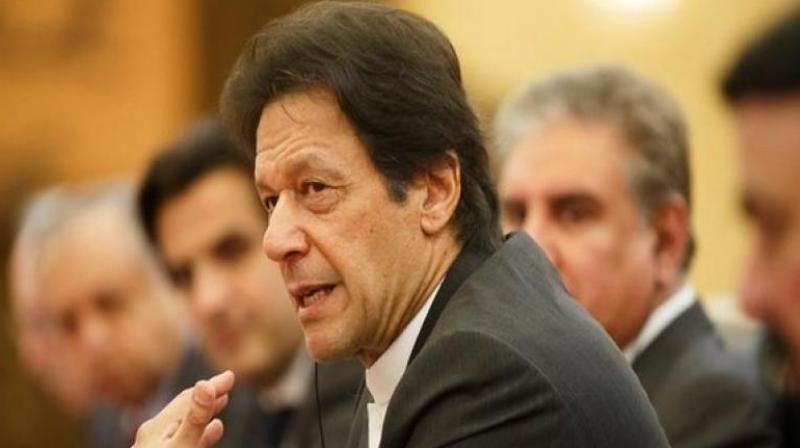View from Pakistan: Still a hybrid regime, with Imran on a sticky wicket
A lot has already gone wrong and the stuff that has gone wrong is obvious for two reasons.

By now, it’s apparent to all — or at least to anyone willing to look — what this is. Gone are the fig leaves and legal nuances and faux optimism. It is what it is, it isn’t very pretty and it’s probably going to get a whole lot uglier.
Welcome to the hybrid regime.
A lot has already gone wrong and the stuff that has gone wrong is obvious for two reasons. Economic hurt is impossible to hide, especially at the consumer end and when jobs start to disappear. Folk can easily intuit what’s going on every time they buy something or wander around in search of jobs.
Imran helped. His message was simple — I’ll fix everything at the same time in record time, just trust me — while the base he cultivated is simpler still: young-ish, previously apolitical and with not much understanding of much.
Outsized expectations were always going to collide with reality, but that reality has turned out to be so dismal and the collision come at such speed is down to something else.
The periodic shopping around for a useful idiot to nominally run the show was more straightforward in times past: pick a technocrat or select a traditional politician. Technocrats get a bit of work done because that’s what professional sorts do: they try and do stuff.
Never mind that they screw up matters and leave a mess behind; while they’re on the job, technocrats always look like they’re busy doing stuff. They have to.
The traditional politician has much the same imperative to be seen to be doing things, but his focus is mostly on greasing the system because no grease means no support and no support means no utility to the ones hunting about for the next useful idiot. But things aren’t so simple in a hybrid regime.
The headhunters don’t just have to find someone who can get things done, they need someone to bring a veneer of legitimacy to the whole enterprise. In these tricky times, a memorable Mohammed Hanif phrase must suffice by way of elaboration: “Khan has politicised a whole generation, only to deliver it into servitude to Pakistan’s old establishment.” If the headhunters needed someone Imran-esque, give the man his due: Imran made it impossible for the headhunters to look past him. A hybrid regime fronted by a technocrat or traditional politician was a non-starter in the presence of Imran.
With the idea being to put Nawaz and Zardari to the sword politically and then if you look past Imran too, there isn’t much left in the wagon wheel of public opinion from which to secure legitimacy for a hybrid regime. One of the more curious elements of the experiment we’ve all been made to live through this past year is why this doesn’t seem to have occurred to Imran — that much as he needs them, they need him, or did anyway. Perhaps Imran really has no interest in anything beyond becoming PM as a final chapter in a life well spent. Or perhaps in finding their latest useful collaborator the competence deficit is more than what had been hoped for.
Either way, in eviscerating great chunks of his political capital in little over a year, Imran has landed himself in an awkward and potentially perilous situation: on balance, it’s not quite clear if the veneer of legitimacy Imran brings to the hybrid regime is really worth the headaches he’s created for the regime.
But if what’s gone wrong is obvious and how we’ve got to this miserable point in double-quick time is fairly clear, there’s a more fundamental problem with the hybrid regime: it can’t work, no matter who is trotted out to front it. Slice it anyway you like. Regimes almost by definition are a centralising force, but delivery is almost always decentralised.
Perhaps because the margins at the centre were razor-thin or perhaps because the impetus behind this project is itself a centralised force, too much time and attention was wasted on fashioning a workable arrangement at the centre.
Imran is now effectively a lame duck at the centre, the IMF straitjacket and the snatching away of key ministries from his control ensuring that. But Imran still has real sway in Punjab and KP and, with the right assistance, a fair bit of potential to meddle in Sindh.
That Imran has proved rubbish at managing the provinces, and thereby undercut the rationale of the hybrid regime, has obscured the point that the provinces can’t be managed from the centre. But then no regime can tolerate multiple power centres across the provinces. It’s a riddle with no solution.
Or flip it around. Just because Imran is flailing around doesn’t automatically have to mean that a better frontman can never be unearthed. It could just be a question of more skilfully looking in the right place at the right time. But the internal contradictions of a hybrid regime are too many and too varied to be adequately and sustainably overcome.
By now, it’s apparent to all what this is: it isn’t very pretty and it’s probably going to get a whole lot uglier. And that we still have Imran is both the good news and the bad.
Pakistan, eh? May God bless this land and good luck to all of us here.
By arrangement with Dawn

